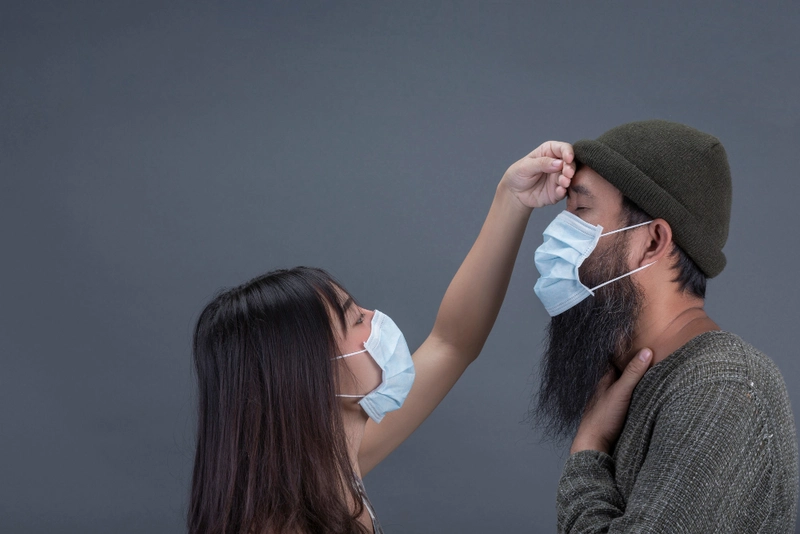- Published on: Apr 02, 2024
- 2 minute read
- By: SecondMedic Expert
Is The '8 Hours Of Sleep' Rule Just A Myth?
In the fast-paced world we live in, sleep often seems like a luxury we can't afford. With demanding jobs, social obligations, and endless scrolling on our devices, getting a full eight hours of sleep can feel like an impossible dream. But is the '8 hours of sleep' rule really necessary, or is it just a myth perpetuated by conventional wisdom? Let's delve into the science behind sleep and uncover the truth.
The Origin of the 8-Hour Rule
The notion of needing eight hours of sleep each night has been ingrained in our culture for decades. It's often touted as the optimal amount of sleep for adults to function at their best. But where did this rule come from, and is there any scientific basis to support it?
Historically, the idea of eight hours of sleep can be traced back to the early 20th century. During this time, industrialization led to standardized working hours, with labor unions advocating for an eight-hour workday. Consequently, experts began recommending eight hours of sleep to align with this schedule, assuming it would promote optimal productivity and well-being.
The Reality of Sleep Needs
While eight hours of sleep may be ideal for some individuals, it's not a one-size-fits-all solution. Sleep needs can vary significantly from person to person based on factors such as age, genetics, lifestyle, and overall health.
According to the National Sleep Foundation, adults aged 18-64 generally require 7-9 hours of sleep per night for optimal health and functioning. However, this range is not set in stone, and some people may thrive on slightly more or less sleep. The key is to listen to your body and prioritize quality sleep over arbitrary numbers.
Quality Over Quantity
More important than the number of hours spent in bed is the quality of sleep obtained. Factors such as sleep environment, sleep hygiene practices, and sleep disorders can all impact the restfulness of your sleep.
Creating a conducive sleep environment involves minimizing noise, light, and electronic distractions in the bedroom. Establishing a consistent bedtime routine signals to your body that it's time to wind down, making it easier to fall asleep and stay asleep throughout the night.
Additionally, addressing any underlying sleep disorders, such as sleep apnea or insomnia, is crucial for improving sleep quality. Consulting with a healthcare professional can provide personalized recommendations and treatments to address these issues effectively.
The Myth of "Catching Up" on Sleep
One common misconception is that you can "catch up" on missed sleep by sleeping longer on weekends or days off. While it's true that you can temporarily alleviate sleep debt in this way, it's not a sustainable solution in the long run.
Irregular sleep patterns disrupt your body's natural sleep-wake cycle, leading to further sleep disturbances and daytime fatigue. Instead of relying on catch-up sleep, strive for consistency in your sleep schedule by maintaining a regular bedtime and wake-up time, even on weekends.
The Impact of Technology on Sleep
In today's digital age, technology plays a significant role in our daily lives, but it can also negatively affect our sleep patterns. The blue light emitted by smartphones, tablets, and computers can interfere with the production of melatonin, the hormone responsible for regulating sleep.
To minimize the impact of technology on your sleep, establish a digital curfew at least an hour before bedtime. Engage in relaxing activities such as reading, meditating, or taking a warm bath to prepare your mind and body for sleep.
Conclusion: Rethinking the '8 Hours of Sleep' Rule
In conclusion, while the '8 hours of sleep' rule has been deeply ingrained in our collective consciousness, it's not necessarily a one-size-fits-all prescription for optimal sleep. Instead of fixating on a specific number of hours, focus on improving the quality of your sleep through healthy sleep habits and lifestyle choices.
Listen to your body's signals and prioritize restorative sleep, even if it means deviating from conventional norms. By understanding your individual sleep needs and implementing strategies to enhance sleep quality, you can enjoy the benefits of a well-rested mind and body, regardless of the number on the clock.
Read FAQs
A. Yes, 8 hours of sleep is generally considered good for most adults to promote optimal health and well-being.
A. Most adults need 7-9 hours of sleep for optimal health, but individual needs may vary.
A. Not necessarily; individual sleep needs vary, so 7 hours may be sufficient or inadequate depending on the person.
Our Services
Request A Callback
Recent Posts
Seasonal Flu vs Covid-19: 2025 Comparison
Jun 25,2025
Joint Pain in Rainy Weather – What Doctors Say
Jun 24,2025
Impact of Junk Food on Hormonal Balance
Jun 19,2025










